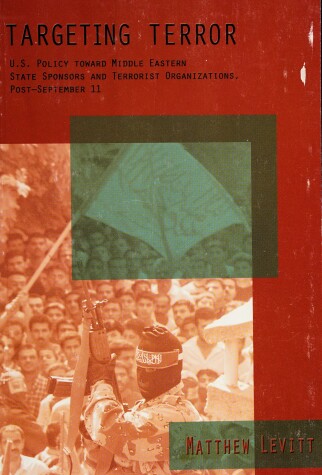September 11 produced unprecedented political will in the United States to fight terrorism with all of the energy and power at the collective disposal of America and its allies. That principle has already been applied to al-Qaeda and is now being applied to Saddam Hussein's Iraq. But what effect has the US-led war on terror had on the leaders and state sponsors of other Middle Eastern terrorist organizations? Here, Michael Levitt provides an assessment of US counter-terrorism policy during 2002 and argues that, without marshalling the resolve and resources to fight terror on all its fronts simultaneously, the West will not fully come to grips with the implications of September 11. The book begins with an overview of the war's impact on counter-terrorism documents produced since the attacks, then focuses on the activities of Palestinian terrorist groups, the escalating roles played by Syria and Iran, and the facilitation of terrorism by entities that are not included on the US State Department's sponsors of terrorism list.
Levitt argues that to effectively combat terrorism, neither the United States nor its allies can be satisfied with battling only al-Qaeda, or any other specific terrorist group or collection of groups. The war on terror must target terrorism as a means, and all organizations that employ it or facilitate its use.
- ISBN13 9780944029817
- Publish Date 1 May 2003
- Publish Status Active
- Out of Print 2 July 2021
- Publish Country US
- Imprint Brookings Institution
- Format Paperback
- Pages 141
- Language English
